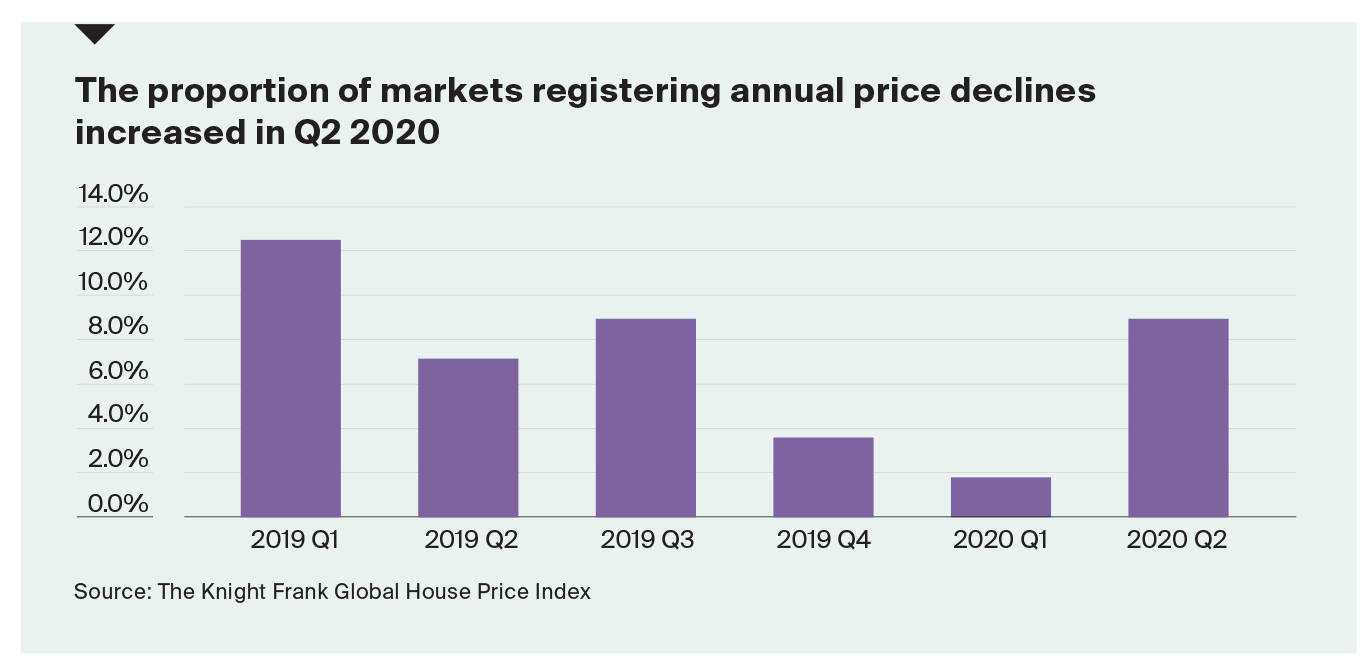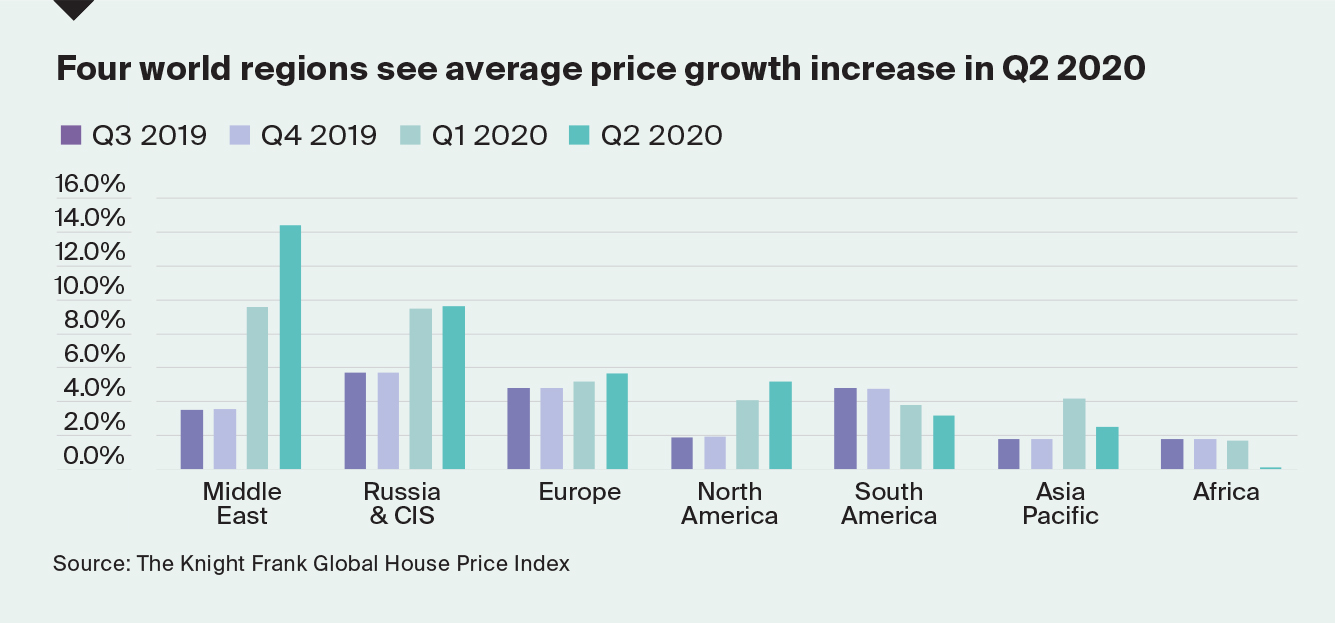What impact is Covid-19 having on global house prices?
The data in this report is backward looking covering the year up to 30 June 2020 when the Covid-19 pandemic had hit most global markets.
1 minute to read
It is not unusual for official house price indices to be published with a two or three-month time lag but this quarter 29 of the 56 countries and territories we track (those in italics in the main table) have yet to report their figures for Q2 2020, no doubt as a direct result of Covid-19 and operational challenges. Yet, despite this the data still offers a glimpse into the impact of Covid-19 with the number of countries and territories seeing a decline in prices on the rise again.

Turkey leads the annual rankings with prices up 25.7% year-on-year but it’s worth noting inflation currently sits at around 12%. European countries occupy 18 of the top 20 rankings this quarter with Baltic and Central and Eastern European nations well represented.
New Zealand, Germany and South Korea, three countries that were initially thought to have dealt with the pandemic most effectively registered mixed results. Germany has yet to report Q2 figures, New Zealand slumped from second to 11th place in the rankings between March and June – although it still recorded 9% annual price growth – and South Korea, where price growth was anaemic at 0.1% in Q1 has seen annual price growth pick up to 1.3%.

These trends suggest the impact of the pandemic on global housing markets is likely to be inconsistent and irregular. Much will depend on the state of the housing market prior to the pandemic, the length and severity of the lockdown and each country or territory’s reliance on international demand which has dried up in recent months due to travel restrictions.
Read the full index here
For more information please contact Kate Everett-Allen
Main photo by Anna on Unsplash